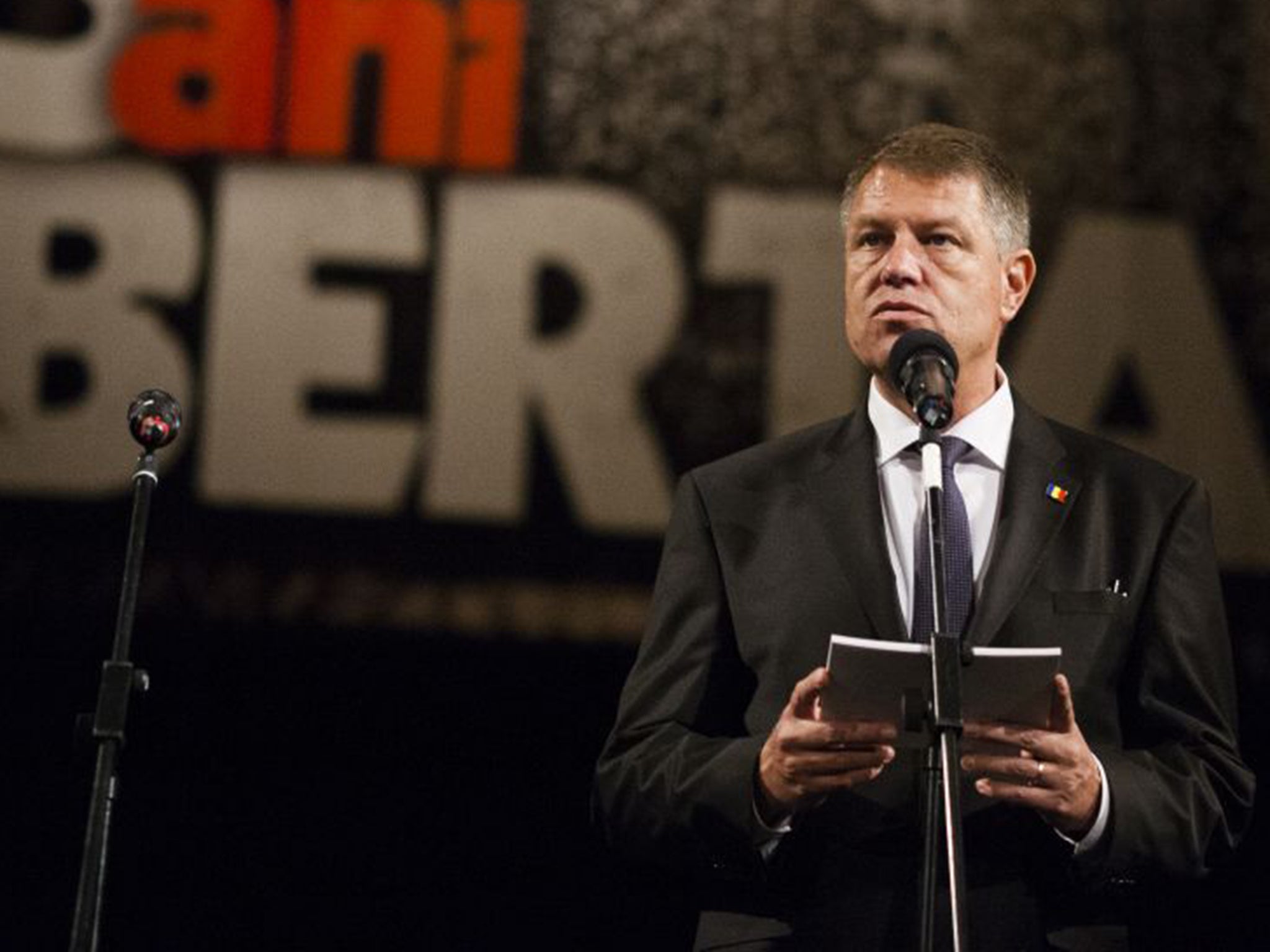Romania's new president declares radical plans for his country, saying 'a lot needs to change'
Klaus Iohannis wants his country to become 'a better-functioning democracy'

Your support helps us to tell the story
From reproductive rights to climate change to Big Tech, The Independent is on the ground when the story is developing. Whether it's investigating the financials of Elon Musk's pro-Trump PAC or producing our latest documentary, 'The A Word', which shines a light on the American women fighting for reproductive rights, we know how important it is to parse out the facts from the messaging.
At such a critical moment in US history, we need reporters on the ground. Your donation allows us to keep sending journalists to speak to both sides of the story.
The Independent is trusted by Americans across the entire political spectrum. And unlike many other quality news outlets, we choose not to lock Americans out of our reporting and analysis with paywalls. We believe quality journalism should be available to everyone, paid for by those who can afford it.
Your support makes all the difference.Romania today inaugurates a new president intent on sweeping away years of stagnation and mismanagement.
Klaus Iohannis, a 55-year-old conservative, pro-Western politician, so far has experience only of running a medieval Romanian city. He set out his radical goals for his country in an interview with The Independent on Sunday. They include a return to fiscal restraint, bolstering the rule of law and dealing with corruption.
His lack of experience on the national political stage turned out to be an advantage with an electorate weary of flashy politicians they saw engaging in petty, vituperative quarrels while the nation's employment levels, agricultural output and pensions all went into decline.
"My election was certainly a surprise to analysts and even to my own supporters – but especially a huge shock for most of Romania's politicians," Mr Iohannis chuckled, as he sat in front of an old stove heater in a stark office decorated only with a baubled Christmas tree.
Mr Iohannis began his career as a physics teacher, then became a popular mayor of Sibiu, which he transformed into a tourist attraction, cutting unemployment to near zero. "I am not a rebel, but I am a very different kind of politician," he said. "I think this is one of the main reasons I got a huge number of votes."
On the eve of the presidential election run-off, most news outlets predicted that the incumbent prime minister and presidential front-runner, Victor Ponta, was poised for victory. The socialist premier had held a 10-point lead in the first ballot. In the second round, Mr Iohannis garnered nearly 55 per cent of the vote.
One factor, he said, was his highly successful campaign to attract young voters via social media. "I was amazed at the huge number of followers [on Facebook] at the end of my campaign. Right now, it's around 1.3 million. I never imagined I would be the number-one politician in Europe on Facebook."
It is true: second is the German Chancellor, Angela Merkel, with less than a million. The achievement is all the more remarkable since Mr Iohannis is from Romania's small German-speaking ethnic minority and is a Lutheran Protestant, when most people are Romanian Orthodox Christians.
His opponent ran a nationalistic campaign and promised a boost to pensions, even though the country is running short of money and needs to borrow large sums from the International Monetary Fund in return for agreeing to austerity measures.
Mr Iohannis said that he plans to transform politics while in power: "I think we have had too much show, too much sterile debate, not enough solutions." He will urge his people to swallow more years of austerity. "A lot needs to change," he said.
The 25th anniversary of the overthrow of the dictator Nicolae Ceausescu falls this week. "By the end of my mandate, Romania has to be a better-functioning democracy. By then, nobody should question the rule of law in Romania. The education system should be good enough to make us proud. People should get decent treatment in hospitals. And the economy should be good enough to encourage Romanians living abroad to come home."
It sounds like a tall order. But Mr Iohannis has already proved he can confound the experts' predictions.
Join our commenting forum
Join thought-provoking conversations, follow other Independent readers and see their replies
Comments